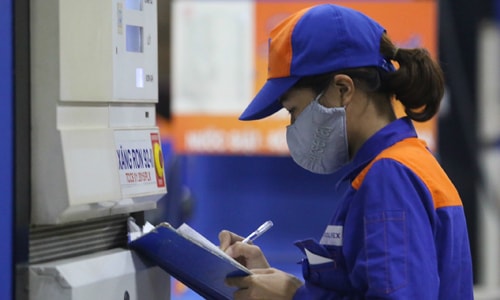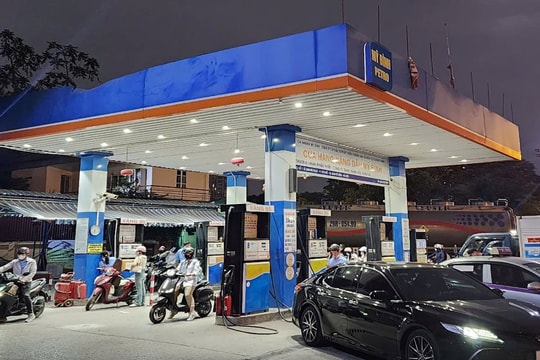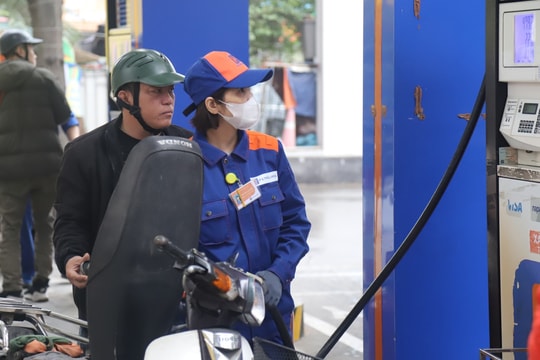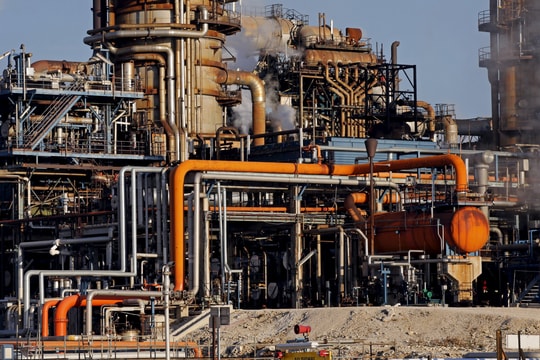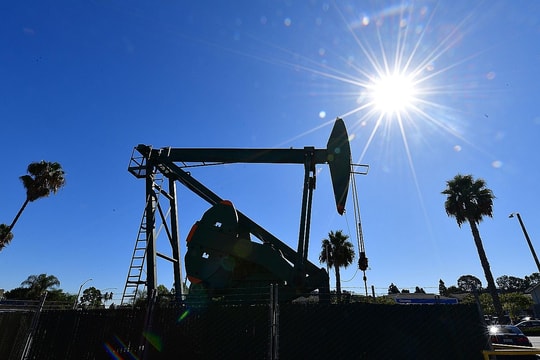State Audit: Petroleum enterprises 'earn huge profits' thanks to tax differences
The unreasonable tax policy of the petroleum price management agency helps many key enterprises benefit greatly.
According to the results of the State Audit on the establishment, management and use of the Petroleum Price Stabilization Fund and the management and operation of petroleum prices in the period of 2015 - 2016, it was determined that the main petroleum dealers had enjoyed a large difference. This benefit stemmed from the unreasonable tax calculation policy of the petroleum price management agency.
The State Audit said that in 2015 and the first five operating periods of 2016, the joint Ministry of Industry and Trade - Ministry of Finance applied the normal preferential import tax from markets other than MFN (20%) in the operation "not consistent with the reality arising at import hubs, leading to an increase in base prices, creating a large surplus for the hub units". According to calculations, thanks to this difference, the 10 audited hub traders benefited more than 3,300 billion VND.
The application of the weighted average tax from the end of March 2016 is considered "more reasonable, but only temporary", still causing a difference in import tax between construction and reality. Data from 10 key petroleum traders in 2016 shows that the difference due to this tax is still over 1,400 billion VND.
|
Many businesses benefit greatly from the tax difference in gasoline price management.Photo: Ngoc Thanh |
Specifically, the audit agency said that through auditing the actual books of diesel oil alone, petroleum trading enterprises benefited from the import tax on gasoline from ASEAN (ATIGA- 10%) from 5-25% in 2015; and 0.6 - 10% in 2016. This is the main factor that makes the actual base price at the unit lower than the base price managed by the inter-ministerial committee, causing the enterprise to increase its profit by about 4,800 billion VND. The unit with the highest profit is the Vietnam National Petroleum Group (Petrolimex) with about 3,000 billion VND.
The State Audit also said that the Ministry of Finance's application of weighted average tax on petroleum products "does not ensure legal basis, transparency and clarity". Therefore, to overcome the shortcomings in determining base prices and contribute to the fight against tax evasion, the audit agency emphasized that it is necessary to regulate the import tax rate at an appropriate level.
According to the conclusion, the State Audit said that the joint ministries did not accurately determine the price for calculating special consumption tax, causing the difference between special consumption tax and value added tax (VAT) in 4 operating periods (July and August 2016) to be more than 216 billion VND. The joint ministries also determined unreasonable exchange rates for calculating import tax, special consumption tax, and value added tax, leading to a shortfall of 214 billion VND over 17 operating periods at 10 focal units.
In addition, during the process of managing gasoline prices in the 2015 - 2016 period, the Ministry of Industry and Trade - Ministry of Finance announced the base prices of popular gasoline products on the market such as RON 92 gasoline and 0.05S diesel.
However, this agency "forgot" to announce the base prices of some products such as RON 95 gasoline and 0.25S diesel.Specifically, the basic price of RON 95 was not announced by the joint ministries in 47 price management periods in 2015 and 2016; diesel 0.25S in 23 price management periods in 2015.
Although discovering a large financial difference of over VND4,800 billion, the State Audit only recommended that the audited focal units pay an additional VND252 billion in taxes to the budget.
The audit agency recommended that the Ministry of Finance should study and apply a uniform import tax rate for gasoline and oil, possibly at 0%, to facilitate price management and control and minimize tax evasion. It is also recommended that the special consumption tax on gasoline and oil be revised to be consistent with the calculation of base prices, ensuring tax obligations and avoiding budget losses.
Regarding the regulations on the deduction and expenditure of the Petroleum Price Stabilization Fund, the State Audit noted that it should not be prolonged and the expenditure should not be large, leading to domestic prices not following the market price. "The time of deduction and expenditure of the Price Stabilization Fund must be consistent with the principle of deducting the fund when prices decrease to compensate for times when prices increase, ensuring the State's price management policy and stabilizing petroleum prices," the State Audit stated.

